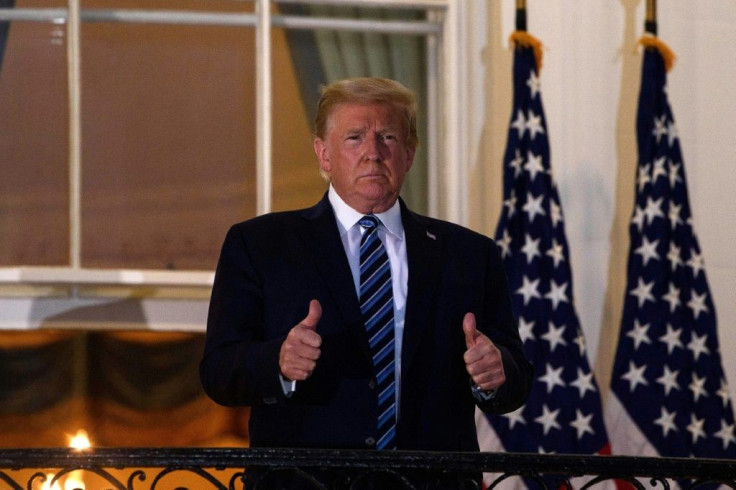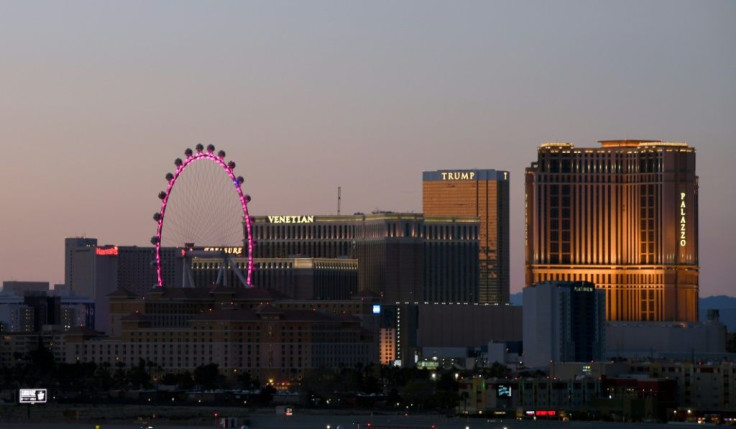Trump Moved Millions From Jointly Owned Hotel To Campaign Tax-Free, Times' Tax Documents Suggest
KEY POINTS
- Tax documents from the New York Times suggest that Trump transferred money from a hotel jointly owned by Phil Ruffin to fund his campaign, marking them as a business expense
- Ruffin and Trump are longtime friends, supporting each others' businesses, social events, and campaigns
- Ruffin has headlined an effort to secure help from the government to construct a high-speed rail that would connect the Las Vegas casinos he and Trump own and Los Angeles, and effort that found renewed success under Trump's administration
New revelations from the New York Times’ trove of Trump tax documents allege that Donald Trump funneled $21 million from a joint-hotel venture to businesses he alone owned. The windfall came at a time when the Trump presidential campaign was struggling financially.
Trump had pledged to fund the campaign himself to prove his independence from wealthy donors, but his floundering businesses made that a difficult promise to keep. His divisive rhetoric made traditional wealthy Republican donors reluctant to shell out. Trump had sold millions in stock to prop his campaign up, but cash flow had been reduced to just a few million dollars each month.
Amid the financial struggles during the campaign, Trump’s longtime friend and business partner Phil Ruffin moved $21 million from the Trump-Ruffin hotel they owned together to a shell company named Trump Las Vegas Sales and Marketing, the Times notes.

The company has no employees on its payroll and no apparent regular business. It had only turned a profit twice before. Yet Trump stated in his tax returns that it had provided $21 million in services to the hotel, payment for which then went directly to Trump. Trump later surprised observers by pumping another $10 million into his campaign.
Daniel Shaviro, professor of taxation with New York University, told the Times those payments warranted closer examination: “Why all of a sudden does this company have more than $20 million in fees that haven’t been there before? And all of this money is going to a man who just happens to be running for president and might not have a lot of cash on hand?”
Tax evasion and violation of campaign finance laws could all be in play. If those payments were made without any services performed, their write-off as "business expenses" would be criminal tax evasion. If those funds were illegal, or came from a corporation and went into Trump’s presidential campaign, that could be a violation of campaign finance laws. If they came from an individual, such as Ruffin, and exceed maximum political donation limits, that would be a violation of campaign finance laws.
Former federal prosecutor Glenn Kirschner told MSNBC on Friday that the reports "looks potentially criminal" for Trump.

Trump and Ruffin have a long relationship. Trump helped introduce Ruffin to the woman who would eventually become his third wife, a Ukrainian model, who is friends with first lady Melania Trump. Trump and Ruffin also have previous business ties and Ruffin supported the presidential campaign, even hosting a rally at his own Treasure Island Hotel and Casino and expounding on Trump’s generosity.
“You won’t hear this in the media, but Donald gave $20 million to the St. Jude children’s home. He could have used that $20 million for television ads, but he decided to give it to the children of cancer,” said Ruffin.
An investigation by the Washington Post found no evidence of any such donation, and the alleged charity doesn’t appear in any of the Times’ tax documents. Ruffin also donated to the Donald J. Trump Foundation, a charity that was shut down in 2018 after allegations of illegally misused funds for political purposes, an incident that resulted in Trump and his three oldest children being banned from running charities in New York.
The Times suggested that Ruffin financially benefited from his relationship with Trump. His access to Trump may have helped him revive a high-speed rail project between Los Angeles and Las Vegas, which would be a boon to casino owners. The project had requested a $5.5 billion loan from the federal government during the Obama administration but was rebuked by then-spending-wary Republican legislators like then-Rep. Paul Ryan of Wisconsin and former Alabama Sen. Jeff Sessions.
The Trump administration has proved much more fertile ground for the project, approving $1 billion in bonds sales to investors. State governments soon followed suit, and the project is slated to be completed as soon as 2024.
© Copyright IBTimes 2025. All rights reserved.





















